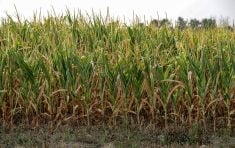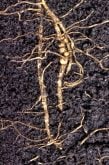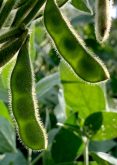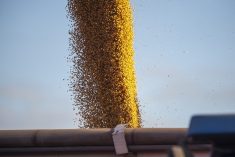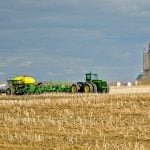Drought conditions this summer lowered soybean yields in much of the province, but they were far from uniformly poor. Some growers harvested their best soybean crop ever.
“Dry conditions have really been the main thing. If you got rain, you might have had the best year yet,” says Emma Epp, certified crop advisor and co-owner of Epp Ag Solutions near Leamington.
Why it matters: The impact of drought can be reduced with good soil management and active rotation but sometimes that’s not enough to maintain average yields.
Read Also

The forced Japanese-Canadian farmers of the Second World War
Manitoba’s sugar beet farms drew on displaced Japanese-Canadians from B.C. during the Second World War
Yield reports in Epp’s part of the deep southwest covered a wide range. A combination of drought and hail in areas of western Chatham-Kent, for example, led to yields as low as 10 bushels per acre. Conversely, she has heard reports of yields reaching 90 bushels.
“It seems like early season beans were just as good as late season beans. I think the rains, when they did come, were earlier rather than later,” Epp says. Spider mites and other pest problems weren’t widespread.
“If you had good rotation with the dry, you were better off. If you didn’t, it emphasized some of the problems.”
[RELATED] Ontario crop production estimates in line with field observations
Drought early in the growing season spurred a mismatch between canopy growth and herbicide timing, according to Calvin Brown, branch manager for Sylvite in Norwich. The result was higher weed pressure as crops matured.
“The residual herbicides ran out of steam before the crop canopied. It doesn’t appear to be yield-robbing pressure, but for some, it did require a pre-harvest application for harvestability,” says Brown.
Horst Bohner, soybean specialist with the Ontario Ministry of Agriculture, Food and Rural Affairs, also says conditions through 2022 contributed to a wide yield range. Speaking to Farmtario Oct. 14, he says his research trials with many different varieties in diverse conditions generated results from the high 30s to low 90s in bushels per acre.
“Every year we get a lot of extremes because soybeans are so prone to being damaged by hail or frost or something like that. That’s usually those extreme lows, but this year it’s directly tied to moisture,” Bohner says.
Eastern Ontario received more moisture, although aphids were a greater challenge in the region. Disease issues were also present.
“Low yields can be discouraging [to growers] when prices are so good. But they didn’t do anything wrong. There’s nothing to be said we should do differently,” says Bohner.
“It’s one of these things – we rely on the weather. On the whole I’d say it could have been a lot worse… We’ll probably end up with a relatively normal crop in terms of the average provincial yield. It’s just the way it is. It’s a year of extremes.”
Bohner says most of Ontario’s soybean crop has been harvested and the harvest window looks good for those with later planted, double-crop, or longer season varieties still in the field. However, problems with uniform maturity have been observed and continued dry conditions have lowered seed weights.
“It’s just a function of a relatively dry fall, and warm too. It goes from too wet to too dry in an awful hurry, but it’s hard to complain because you’re trying to get the wheat in too.”
“Drought is one of the standout lessons,” says Brown. “It’s going to be hard to filter through the data given the widespread differences.”
On a positive note, he says a dry fall brought an efficient harvest season and ample wheat planting opportunity.






